
You're sitting at a bar, frustrated and burnt out, six drinks down with no signs of slowing. You signal the bartender for another. He hesitates.
"You all right, buddy?"
"I'll be better once this glass is full."
Behind you, the door bursts open. Through the fog and the blinding light steps a midnight woman with a brimstone fauxhawk and a Billy Idol sneer. Her shredded leather pants are falling apart at the seams, and she's wearing a studded jacket left casually unzipped with nothing underneath, illuminating ashen skin. Her eyes are fallen morning stars; her jaded gaze sweeps lazily through the bar. She doesn't see you.
But she does sit next to you.
This is what it feels like to play through the stellar, rock and roll opening of Shadows of the Damned, the latest peyote-infused trip from Suda51, the auteur behind Killer7, and Shinji Mikami, creator of the Resident Evil series. That opening was a breath of fresh air for me, a much-needed reminder that crazy Japanese games still exist in today's increasingly cautious market.
During that opening, I was introduced to "Garcia-fucking-Hotspur," a Mexican demon hunter on a road movie through hell to rescue his lady love, and Johnson, his easily excitable British sidekick (who's just a floating skull, by the way). I shot the lord of demons through Garcia's apartment window and into a portal to the underworld then dove in after him. I rode a chopper down a deserted highway and into a cobblestone hell. It's almost overwhelming how immediately cool this game is.
Here's the thing: that initial impression wears off quickly.
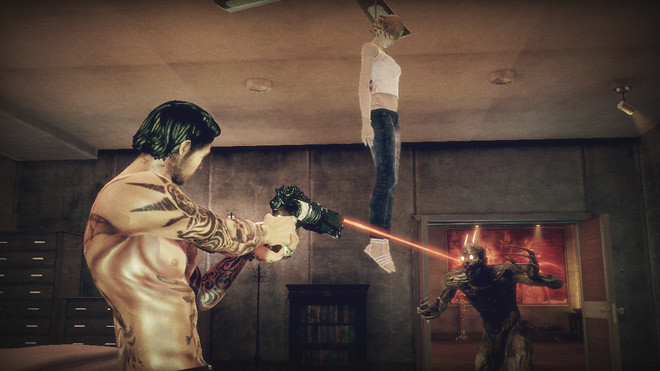
I like to divide Shadows up by the defining personalities behind it: Suda51 holds up his end of the bargain; the world and story of Shadows is often hilarious, sometimes embarrassing and silly, but always wildly imaginative. Shinji Mikami, however, does not; there's not enough variety in the action, boiling the game down to a more boring version of Resident Evil 4 with a "darkness" mechanic that gets old quick but stays until the end. At least you can move and shoot, finally.
Even Akira Yamaoka, who composed the music in the game, does a fantastic job. If Mikami's work represents the hands of the game, and Suda51's the eyes and mouth, Yamaoka's is the pulsating heart. He never misses a beat, complementing every moment in the game with the perfect track. Haunting, frantic, beautiful, jovial — he nails it all.
Shadows really is just a Resident Evil 4 redux. Garcia is a walking tank, directly analogous to Leon Kennedy, that you control from the same over-the-shoulder perspective with the same loose aiming. You can dodge and melee just as awkwardly and the only substantial difference between Hotspur and Kennedy is Hotspur's ability to move and shoot simultaneously.
To be fair, that is a pretty big difference. Leon's inability to pat his head and rub his stomach at the same time made that game unplayable for me. Dead Space perfected what that kind of character should feel like, so Garcia merely splits the difference — functional, but not especially satisfying.
There are a few nuances here and there, like if you headshot an enemy with your first bullet, the camera follows that bullet as it flies forth and explodes the enemy's head. It's a cool throwback to Killer7 that had me carefully lining up my shots to earn that little bonus.
The only other difference is the darkness mechanic. You see, demons like the darkness, but Garcia can't survive for very long in it, so prepare to be ambushed often and immersed in the stuff. You'll have to find and shoot a mounted, chewing goat head with a "light shot" to illuminate the area before you start to lose health. It's a cool visual effect, but it's a pretty flat mechanic that's only creatively used in a handful of spots throughout the game.
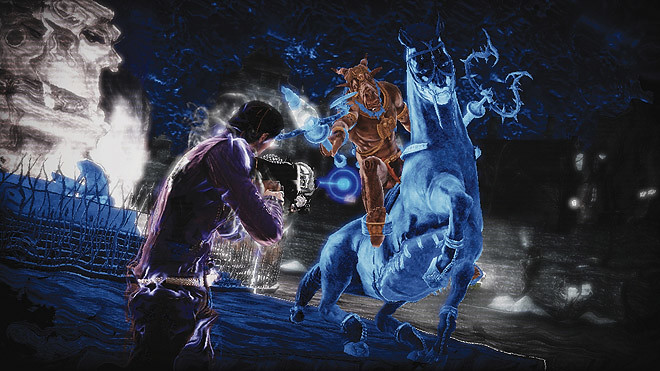
If it seems like I'm down on Shadows so far, it's because of the insanely high pedigree associated with it. While I've never been a huge fan of Mikami's games, he seemed like the perfect counterpoint to Suda51, a man whose games are typically fascinating and abstract, but not exactly "fun" in the traditional sense. Killer7, for instance, was impossibly dense, so rife with political intrigue and mystery that, even six years later, I'm still wrapping my head around what exactly happened in that game. That its action was pretty tedious almost didn't even matter.
I'd imagine that designing a game like Killer7 is an exhausting experience, simultaneously cathartic and draining. I'd imagine that because Suda51's games post-Killer7, including Shadows, have all been light, silly affairs, not nearly as rawly ambitious as that game was, a trend he seems keen to continue next with Lollipop Chainsaw, a game where an 18-year old cheerleader in a miniskirt fights zombies in a '50s-throwback world.
And as much as I liked Suda51's delightfully immature humor in Shadows, full of dick jokes and penetration puns, I still wish he had taken himself a little more seriously and crafted an experience as unhinged as Killer7, or at least kept the game funny throughout; as with Brütal Legend, any serious moment that attempts emotional resonance is undercut by the protagonist having done something stupid five minutes prior, like Garcia firing a four-foot long revolver from his crotch, yelling, "Taste my Big Boner!" with every shot.
Yes, that totally happens. No, it's not very funny.
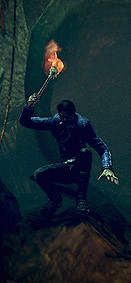
It's because of stuff like that that Shadows isn't the kind of game that benefits from long play sessions: You'll find yourself getting bored, despite the game's attempt to have something new and wild and embarrassing happen every 30 minutes. You'll find Steve Blum's distinctive voice (he's in everything) painfully grating, an all-too generic choice for a character who's anything but. You'll grow increasingly weary of the samey level design, full of arbitrary switches and keys and rudimentary darkness puzzles, as you absentmindedly sail through a sea of clones you tired of five hours ago.
And that's the game's biggest problem: It's way better in the moment than it is in retrospect. As I played, it was light but somewhat repetitive fun, consistently charming, and refreshingly bizarre. But the deeper I got in, the less fun I was having and the more I'd put off playing it. I'd remember how much I hated parts like "taste my Big Boner!" or the infuriating, instant-death chase sequences near the end, and I'd start to dread going back. And that's not at all what I expected.
So is Shadows of the Damned Suda51's best work? Absolutely not.  Is it a great game? No, it isn't. But is it worth playing at least once? Yeah, it totally is. It's just bizarre enough to warrant a rental, but nothing more.
Is it a great game? No, it isn't. But is it worth playing at least once? Yeah, it totally is. It's just bizarre enough to warrant a rental, but nothing more.
Shadows of the Damned / $59.99 / PS3 [reviewed], 360
 Tweet
Tweet 









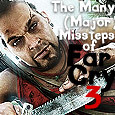
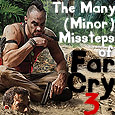

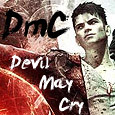
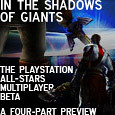

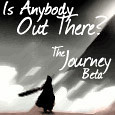




No comments:
Post a Comment